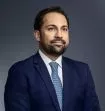- within Environment topic(s)
- in South America
- within Environment topic(s)
- in South America
- in South America
- within Wealth Management, Law Practice Management and Coronavirus (COVID-19) topic(s)
On July 30, 2025, Brazil's National Environmental Council (CONAMA) published Resolution No. 508/2025 (the Resolution), amending Article 5 of Resolution No. 428/2010. The updated provision addresses the procedures for notifying the authority responsible for managing a Conservation Unit (Unidade de Conservação – UC) in environmental licensing processes for projects not subject to the preparation of an Environmental Impact Study and Environmental Impact Report (EIA/RIMA).
The amendments provide greater procedural clarity by detailing the deadlines, format, and content of the notification, as well as rules for the technical contributions of the UC's management authority. Key changes include:
- Notification deadline and timing: The licensing authority must notify the UC management authority prior to issuing the first required environmental license, within 15 days from receipt of the environmental studies.
- Removal of the five-year deadline for establishing the Buffer Zone (Zona de Amortecimento – ZA): The Resolution maintains only the 2,000-meter limit for UCs without a ZA, regardless of the time elapsed since their creation.
- Mandatory observance of the UC's management plan and creation act: In preparing studies or documents supporting the environmental licensing process, the restrictions set forth in the UC's creation act and, where applicable, its management plan must be observed.
- Technical contributions from the UC: Contributions submitted by the UC management authority for the project's environmental licensing must be provided within 30 days and be directly related to the UC's impact. The deadline may be extended once for an equal period, with justification, except for works and activities of low impact.
- Non-binding nature of the UC's contributions: The licensing authority has the final decision on the relevance of the suggested measures and whether to include them in the license.
- Assurance of procedural continuity: A missing or late submission of the UC's contribution does not suspend the licensing process, with the licensing authority assuming responsibility for environmental control of the UC-related impacts.
- Specific cases: The Resolution also covers specific cases involving urban infrastructure. For the installation of water supply, sewage, electricity, and other urban infrastructure networks within UCs, prior approval from the UC management authority is required, pursuant to Article 46 of Law No. 9,985/2000.
In April, the Chico Mendes Institute for Biodiversity Conservation (ICMBio) had already amended its rules on intervention in environmental licensing processes, which we discussed in a Legal Update. This CONAMA update represents further progress in standardizing and improving transparency in notification procedures within licensing processes, providing greater legal certainty to stakeholders and strengthening integration between licensing authorities and UC management bodies.
The Environmental, Climate Change and ESG Practice of Tauil & Chequer Advogados in association with Mayer Brown is available for further clarification on this topic.
Visit us at mayerbrown.com
Mayer Brown is a global services provider comprising associated legal practices that are separate entities, including Mayer Brown LLP (Illinois, USA), Mayer Brown International LLP (England & Wales), Mayer Brown (a Hong Kong partnership) and Tauil & Chequer Advogados (a Brazilian law partnership) and non-legal service providers, which provide consultancy services (collectively, the "Mayer Brown Practices"). The Mayer Brown Practices are established in various jurisdictions and may be a legal person or a partnership. PK Wong & Nair LLC ("PKWN") is the constituent Singapore law practice of our licensed joint law venture in Singapore, Mayer Brown PK Wong & Nair Pte. Ltd. Details of the individual Mayer Brown Practices and PKWN can be found in the Legal Notices section of our website. "Mayer Brown" and the Mayer Brown logo are the trademarks of Mayer Brown.
© Copyright 2025. The Mayer Brown Practices. All rights reserved.
This Mayer Brown article provides information and comments on legal issues and developments of interest. The foregoing is not a comprehensive treatment of the subject matter covered and is not intended to provide legal advice. Readers should seek specific legal advice before taking any action with respect to the matters discussed herein.



